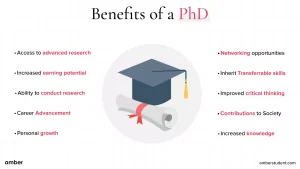
PHD MENTOR, Call or Text on: 07714190105
Local Business
No Call Out Fee
(See us on facebook)

PHD MENTOR

Understanding the Role of a PhD Mentor
A PhD mentor serves as a cornerstone in a graduate student’s journey, extending far beyond the realm of academic guidance. They embody the role of a facilitator, helping students navigate not only the complexities of their research but also the intricacies of personal and professional development. A great mentor recognizes that mentorship is a relational art; it’s about fostering an environment where open dialogue can flourish and students feel empowered to voice their ideas and concerns. This nurturing relationship allows mentees to challenge themselves creatively while maintaining a safety net for innovative experimentation.

Moreover, effective PhD mentors instill resilience in their mentees by sharing their own failures and setbacks—an often unmentioned aspect of academia. Their experience provides insights into how to overcome obstacles, whether they stem from failed experiments or adverse feedback on written work. By encouraging critical thinking and constructive criticism, mentors prepare students not just for successful thesis defense but for careers where adaptability is key. Thus, investing in a symbiotic mentor-mentee relationship enhances not only individual growth but enriches the academic community as well, laying foundations for collaborative progress across disciplines.

What is a PhD Mentor?
A PhD mentor is not just a guide through the labyrinth of academia; they are catalysts for transformation, shaping researchers into confident scholars. This relationship goes beyond mere supervision; it embodies a partnership where the mentor shares their wisdom, connects students with invaluable networks, and provides emotional support during the rollercoaster ride of doctoral research. Their insights can illuminate complex theories or methodologies while challenging mentees to think critically and innovate fearlessly.https://en.wikipedia.org/wiki/Doctor_of_Philosop

Importantly, the role of a PhD mentor evolves as the student progresses through their studies. Initially acting as a source of knowledge and guidance, they later transition into facilitators who encourage independence. A good advisor recognizes when to step back, fostering an environment where students feel empowered to forge their paths in both research and personal development. This dynamic relationship often fosters lifelong connections that extend beyond graduation—a testament to how impactful mentorship can be in molding future leaders in various fields.
Importance of Mentorship in Academia
Mentorship in academia is not merely a support system; it’s a transformative partnership that can redefine the trajectory of a PHD candidate’s career. A good PhD mentor serves as more than an advisor; they are often the key to unlocking opportunities, expanding networks, and facilitating critical thinking skills. Their experience provides invaluable insights into navigating the complex academic landscape and helps mentees develop resilience amid setbacks common to research endeavors.

Furthermore, mentorship extends beyond technical guidance—it fosters personal growth and emotional well-being. Often, academic journeys can be isolating, leaving students feeling disconnected from their peers or unsure of their path. A supportive mentor acts as an anchor during these turbulent times, offering encouragement and perspective that empower students to embrace challenges rather than retreat from them. This relational aspect encourages a culture where thriving intellectual communities flourish, ultimately enhancing innovation across disciplines. In this way, a PhD mentor influences not just the individual but also contributes significantly to the vitality of academia itself.

Finding the Right Mentor for You
When embarking on the journey of pursuing a PhD, the significance of finding the right mentor cannot be overstated. Your mentor should not just be an expert in your field but also someone who resonates with your academic style, values, and long-term goals. It’s essential to seek out mentors who demonstrate an openness to diverse perspectives and foster an inclusive environment that encourages innovative thinking. Engaging with potential mentors through informal discussions or departmental events can provide invaluable insights into their mentoring philosophies and compatibility with your aspirations.

Additionally, consider looking beyond traditional faculty members for mentorship opportunities. Industry professionals, alumni networks, or interdisciplinary researchers can offer fresh viewpoints and guidance tailored to your unique research interests. Don’t hesitate to reach out to multiple individuals—mentorship is often multifaceted, drawing on various experiences and expertise for comprehensive support. Most importantly, trust your instincts; a strong mentor-mentee relationship is built on mutual respect and understanding, ultimately paving the way for both personal growth and academic success during your PhD journey.